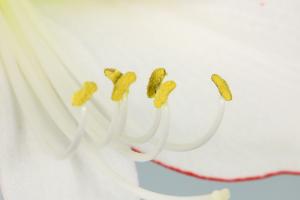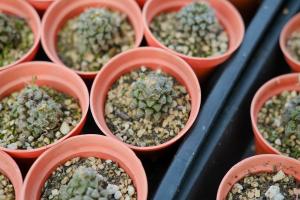Introduction
The cells of plants are structurally different from animal cells. One of the most distinguishing features of plant cells is the presence of a central vacuole. The vacuole is an organelle that occupies a large portion of the plant cell's volume and functions in a myriad of ways that are essential to plant growth, development, and survival. In this article, we will explore the role of the vacuole in plant cells and how it holds water.
What is the Vacuole?
The vacuole is a membrane-bound organelle that is present in all plant cells. It is the largest organelle in the plant cell and can occupy up to 90% of the cell's volume. Vacuoles contain a variety of substances, such as water, enzymes, ions, and waste products. The vacuole's membrane, called the tonoplast, regulates the movement of substances into and out of the vacuole. The vacuole's contents are acidic, which helps to maintain the plant cell's pH.
How does the Vacuole Hold Water?
One of the critical functions of the vacuole is to store water. The vacuole acts as a reservoir for the plant cell, providing a means of storing excess water that the plant can use during times of drought or water scarcity. The vacuole's membrane, the tonoplast, is permeable to water molecules, allowing them to move freely in and out of the vacuole. The process of osmosis regulates the water movement in and out of the vacuole. When the plant cell has excess water, the vacuole stores it, creating turgor pressure that helps to maintain the cell's shape and rigidity. The pressure exerted by the vacuole against the cell wall is responsible for the plant's upright growth.
Other Functions of the Vacuole
Apart from water storage, the vacuole serves several other functions that are essential to plant growth and development. For instance, the vacuole helps to regulate the plant cell's pH. The acidic nature of the vacuolar contents helps to maintain the cell's pH, preventing the breakdown of cellular components. Additionally, the vacuole can store ions and nutrients that are essential for plant growth.
Another critical function of the vacuole is the degradation of cellular waste products. The organelle contains enzymes that help to break down and eliminate cellular waste products, such as proteins and lipids. The vacuole is also responsible for the degradation of organelles that are no longer functional.
Conclusion
The vacuole is a structurally and functionally essential organelle in plant cells. One of its most critical roles is water storage, which helps the plant cope with drought and water scarcity. The vacuole's ability to hold water is attributed to its membrane's permeability to water molecules, which allows for the regulation of water movement in and out of the vacuole. Additionally, the vacuole plays other crucial roles such as pH regulation, nutrient storage, and degradation of cellular waste products. Understanding the vacuole's functions is crucial in understanding how plant cells work and how to improve plant growth and development.

 how many times do yo...
how many times do yo... how many planted tre...
how many planted tre... how many pine trees ...
how many pine trees ... how many pecan trees...
how many pecan trees... how many plants comp...
how many plants comp... how many plants can ...
how many plants can ... how many plants and ...
how many plants and ... how many pepper plan...
how many pepper plan...































